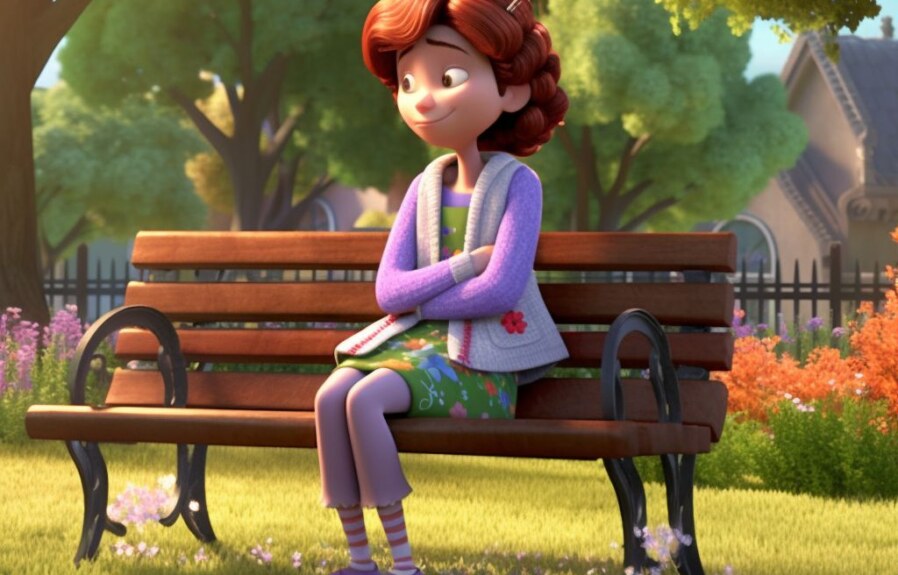Dealing with a disrespectful grown child can be a complicated and emotionally draining experience. As a parent or caregiver, you have invested time, love, and resources in raising your child, and it can be disheartening to see them behave in an inconsiderate or dismissive manner towards you. However, it is important to remember that this behavior is not a reflection of your parenting or your worth as a person. Instead, it may be a symptom of your child’s own struggles or issues that need to be addressed. In this article, we will explore effective ways to deal with a disrespectful grown child, including setting boundaries, communicating effectively, and seeking support.
1. Understanding the reasons behind the disrespectful behavior of your grown child
Disrespectful behavior from a grown child towards their parent(s) can be difficult to manage. As a parent, it’s natural to feel upset, frustrated, and even hurt. It’s crucial to understand that this behavior is not a reflection of your parenting skills, but rather a result of various factors that may be at play. Here are some reasons behind your disrespectful grown child’s behavior:
1. Struggle with Identity
Young adults often go through a lot of changes and struggles during this period. They may not yet have a clear sense of identity or a defined direction in life. This sense of confusion can lead to frustration, anger, and resentment towards their parents.
2. Relationship Difficulties
Your child’s disrespectful behavior towards you may stem from relationship difficulties. They may be going through a tough time with a partner, friend, or colleague. This can lead to negative emotions that are then directed towards you.
3. Mental Health Issues
Mental health issues can heavily impact an individual’s feelings and behaviors. If your grown child is experiencing anxiety, depression, or other mental health issues, they may be struggling with managing their emotions and expressing them inappropriately.
4. Lack of Communication
Perhaps your relationship with your grown child lacks healthy communication patterns. If communication is poor, it’s common for conflicts to arise, leading to disrespectful behavior.
It’s important to take the time to understand what may be causing your child’s behavior. By understanding their perspective, you may begin to develop a path for better communication and mutual understanding.
2. Tips for communicating effectively with your disrespectful grown child
Effective communication is essential in any relationship, but it is particularly crucial when dealing with a disrespectful grown child. In this section, we’ll discuss some tips that can help you communicate better with your grown child and build a more positive relationship with them.
Listen actively and empathetically
When your grown child is being disrespectful, it’s easy to get defensive and start talking over them. However, this approach only makes matters worse. Instead, try to listen actively and empathetically to what they’re saying. Use phrases like “I understand your frustration” or “I hear what you’re saying” to show that you’re trying to understand their perspective.
Acknowledge their feelings and concerns
Your grown child’s disrespectful behavior may be a sign that they’re feeling hurt, frustrated, or powerless. Acknowledge their feelings and concerns, and let them know that you care about their well-being. Encourage them to express their emotions in a constructive way, such as through journaling or talking to a therapist.
Stay calm and avoid reacting emotionally
When your grown child is being disrespectful, it’s natural to feel angry, hurt, or frustrated. However, reacting emotionally will only escalate the situation and make it harder to communicate effectively. Instead, try to stay calm and respond in a neutral, respectful tone. If you feel yourself getting upset, it’s okay to take a break and come back to the conversation later when you’re feeling more centered.
Use “I” statements instead of “you” statements
Using “you” statements can come across as blaming and accusatory, while “I” statements are more neutral and focused on your own feelings and perceptions. For example, instead of saying “You always disrespect me,” try saying “I feel hurt when you speak to me in that tone.” This shifts the focus from their behavior to your own feelings, and is more likely to elicit a productive response.
Schedule regular check-ins
Communicating effectively with a disrespectful grown child takes time and effort. Schedule regular check-ins, such as weekly phone calls or coffee dates, to keep the lines of communication open and work on building a stronger relationship. Over time, these consistent efforts can help your grown child feel more valued and respected, and may lead to a more positive dynamic between the two of you.
3. Setting boundaries and consequences for disrespectful behavior
In order to deal with a disrespectful grown child, it’s important to set clear boundaries and consequences for their actions. This helps to establish a sense of accountability and responsibility for their behavior.
Identify the Behavior and Consequences
First, identify the specific behavior that is disrespectful and communicate the consequences clearly to your grown child. For example, if they are using foul language when speaking to you, let them know that this behavior is not acceptable and that if they continue to do so, there will be consequences such as limited interaction or privileges.
Consistency is Key
It’s important to be consistent with the consequences you set, as this reinforces that there are real consequences for disrespectful behavior. This means that if your grown child continues to act disrespectfully, you need to follow through with the consequences you have set.
Find a Middle Ground
It’s important to remember that while setting boundaries and consequences is important, it’s also important to find a middle ground with your grown child. This means that you need to be open to dialogue and communication, and work with them to understand why they are acting disrespectfully and what you can do to help them improve their behavior.
Overall, is critical in dealing with a disrespectful grown child. It helps to establish accountability and responsibility, while also promoting open communication and dialogue between you and your grown child.
4. Seeking professional help to improve your relationship with your grown child
Sometimes, despite your best efforts, the relationship with your grown child may not improve. In such cases, seeking professional help can be beneficial for both parties. A therapist can help you identify the root causes of your disagreements and provide guidance on how to communicate effectively with your child.
Types of Therapy
There are different types of therapy that you may consider depending on the circumstances. Family therapy can be helpful in resolving conflicts between family members, especially when communication has broken down completely. This type of therapy involves all family members in the process and aims to find solutions that work best for everyone involved.
Another way to improve your relationship with your grown child is through individual therapy. This type of therapy can help you identify and work on your own issues that may be contributing to the conflict. The therapist can also provide strategies on how to navigate difficult conversations, improve communication, and manage emotions.
Benefits of Seeking Professional Help
Seeking professional help can have several benefits. A therapist can provide an unbiased perspective on the situation, offer new coping strategies, and help you understand your grown child’s behavior better. Therapy sessions can be a safe space for both parties to express their feelings without fear of judgment or retaliation.
It’s important to note that seeking professional help does not mean you are giving up or failing as a parent. It shows that you are committed to improving the relationship and willing to put in the effort required to do so.
In conclusion, seeking professional help can be a valuable step towards improving your relationship with your grown child. Whether it’s family therapy or individual therapy, therapy sessions can help you navigate difficult conversations, understand each other better, and create a healthier relationship for the future.
5. Letting go of unproductive habits and empowering your grown child to be responsible and respectful
is an important step in repairing your relationship. It includes recognizing your own behavior and working towards shifting the focus towards empowering your child to be accountable for their actions. Here are some tips to consider:
Acknowledge Your Own Behavior
First and foremost, understand that your relationship with your grown child is a two-way street. It is important to reflect on your own behavior and acknowledge if you are contributing to the cycle of disrespect. Criticizing, belittling, and blaming your grown child will only worsen the situation. Instead, take accountability for your own actions and behavior and assess what needs to change. Being open to changing your own behavior is a vital step towards empowering your child to be respectful and responsible.
Empower Your Child
Empowering your grown child means giving them the tools they need to succeed. It involves giving your child the respect and space they need to build their own identity, make their own decisions, and learn from their mistakes. This also means avoiding the temptation to micromanage or control every aspect of their life. Encourage them to take ownership of their actions and decisions and highlight their positive qualities when appropriate. By doing so, your child will be more inclined to take responsibility for their behavior and communicate with you in a more positive manner.
Focus on Positive Communication
Positive communication is key to improving your relationship with your grown child. Instead of dwelling on negative interactions, focus on positive communication by celebrating small successes and progress. Use “I” statements to convey your feelings and perspective on the situation, and actively listen to your child’s viewpoint. Remember, communication is a two-way street, and both parties should feel heard and respected.
Making productive changes to the relationship with your grown child is possible if you’re willing to let go of unproductive habits and empower your child to be responsible and respectful. This will take time and effort, but by focusing on positive communication, acknowledging your own behavior, and empowering your child, you can move forward in a more positive direction.
People Also Ask
What causes disrespectful behavior in adults?
Disrespectful behavior in adults can be due to various factors such as a lack of proper communication, unresolved personal issues, or a negative upbringing.
How do you deal with a grown disrespectful child?
To deal with a disrespectful grown child, it is important to set clear boundaries, avoid getting into arguments, try to understand their perspective, and seek help from a therapist if needed.
Why do adult children disrespect their parents?
Adult children may disrespect their parents due to unresolved issues from their childhood, feeling unheard or misunderstood, or struggling with their own mental health.
How do you respond to a disrespectful grown child?
When responding to a disrespectful grown child, it is important to remain calm and collected, communicate in a respectful manner, and avoid engaging in toxic behavior.
Can a disrespectful child change?
Yes, a disrespectful child can change with proper communication, support, and guidance from their parents or a professional therapist.
Conclusion
Dealing with a disrespectful grown child can be a challenging experience for many parents. The key to resolving this issue is to remain calm and establish clear boundaries while also trying to understand their perspective and avoiding toxic behavior. Seeking the help of a professional counselor or therapist may also be beneficial in addressing the underlying issues and fostering effective communication. With patience, support, and guidance, a disrespectful child can change and grow into a respectful and responsible adult.



